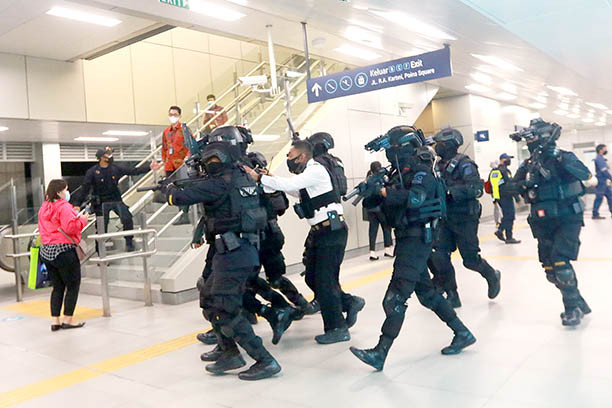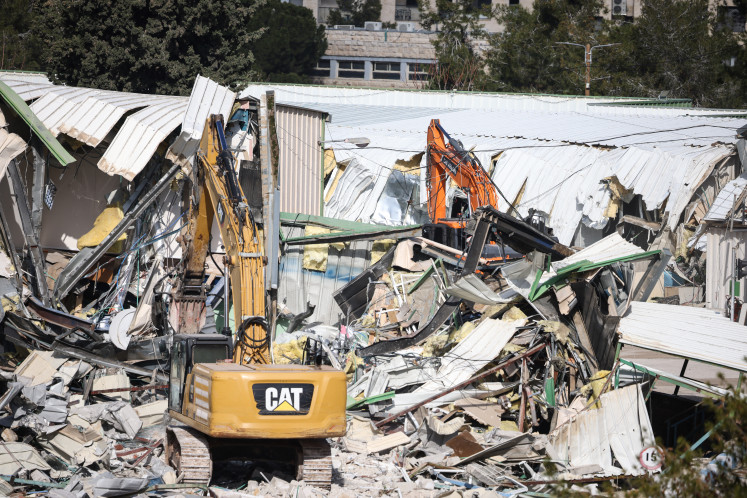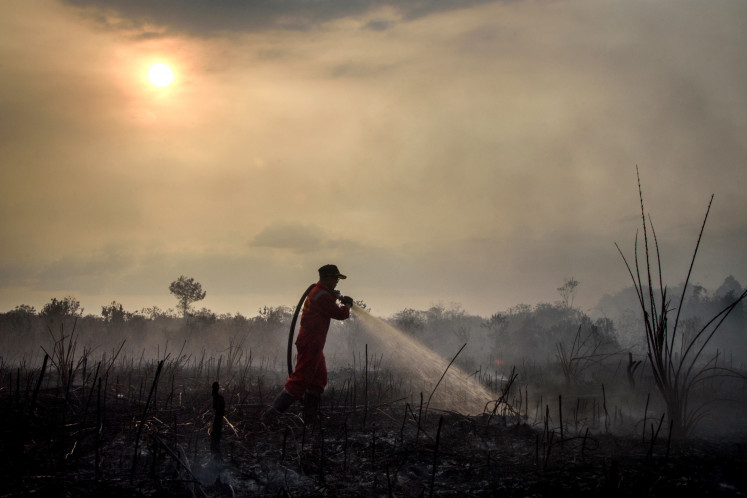Popular Reads
Top Results
Can't find what you're looking for?
View all search resultsPopular Reads
Top Results
Can't find what you're looking for?
View all search resultsFighting extremism
Without substantial changes, the regulation will only harden extremism even more.
Change text size
Gift Premium Articles
to Anyone
M
any have warned the government about the unwanted repercussions of a new policy against extremism and terrorism, as content-wise, it is open to interpretation and can lead to abuse of power in the name of national security.
No less than Nahdlatul Ulama (NU) and Muhammadiyah, the country’s two largest Muslim organizations that champion moderation, on top of human rights and democracy campaigners, have talked tough about the newly enforced Presidential Regulation No. 7/2021 on a five-year national action plan for the mitigation and prevention of violence-based extremism that could lead to terrorism.
Their concern — if not fear — is real, given the clear-cut social and political division the nation has endured since the bitterly contested presidential election in 2014. The wound, instead of being healed, reopened in the following race in 2019, with more or less the same tactics in which the goals justified the means on both warring sides.
So-called national reconciliation occurred after the 2019 election, marked by the inclusion of the erstwhile opposition force Gerindra Party in the ruling coalition. Not only was the peace agreement transactional and pragmatic, but it also engaged only the political elites. On the grassroots level, the acrimony has not ceased, as vividly demonstrated on social media.
The pro and antigovernment camps have been fighting each other on almost every issue; even a trivial matter like the birth of President Joko “Jokowi” Widodo’s third grandchild sparked an unnecessary war of words between them. The contemporary political landscape of Indonesia only knows pro-Jokowi and anti-Jokowi, regardless of his efforts to fulfill his pledge to be a president for all Indonesian citizens.
In this critical juncture, when unity is all the nation needs to escape from the COVID-19 shackles, the government has initiated policies that could justify oppression by individuals or groups against others, only because of differences of opinions or views.
The presidential regulation allows ordinary people to watch and report individuals they believe are committing acts of violent extremism and terrorism in their neighborhoods and will reinvigorate the concept of community policing. Rights groups are worried the regulation could potentially lead to wrongful arrests, or perhaps witch hunts, because of its broad definition of extremism.
Worse, those critical of the government will easily fall prey to the regulation and the police would be available anytime to arrest them upon receiving a report — to the pleasure of a government that hates noise. Coincidently, hardline groups like the now-defunct Islam Defenders Front (FPI) are constant critics of the government, but in a democracy, one cannot be criminalized for one’s opinions.
The government must be more careful in implementing the regulation, which was issued against the backdrop of its dissolution of the FPI. Draconian as it may be, the regulation could in the end curtail civil freedom.
Without substantial changes, the regulation will only harden extremism even more. But instead of banking on the regulation, the government had better maximize existing legal mechanisms and promote democracy, particularly among school children, if it means to tackle extremism.










